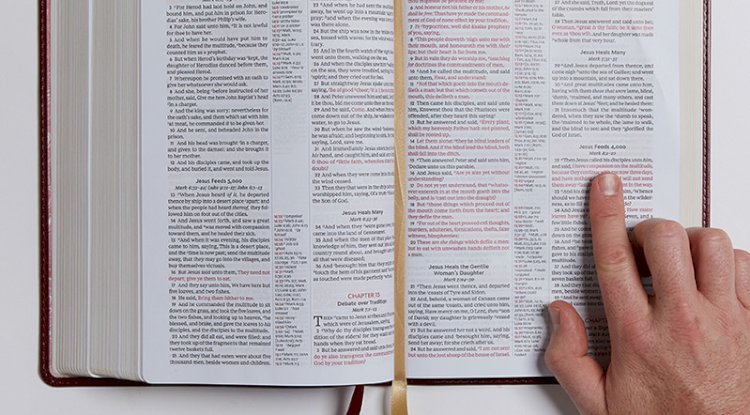What Is the Gospel of Luke?

Today is the Sunday we commemorate the Baptism of the Lord. The Gospel reading comes from the Gospel of St. Luke.

The people were filled with expectation,
and all were asking in their hearts
whether John might be the Christ.
John answered them all, saying,
“I am baptizing you with water,
but one mightier than I is coming.
I am not worthy to loosen the thongs of his sandals.
He will baptize you with the Holy Spirit and fire.”
After all the people had been baptized
and Jesus also had been baptized and was praying,
heaven was opened and the Holy Spirit descended upon him
in bodily form like a dove.
And a voice came from heaven,
“You are my beloved Son;
with you I am well pleased.”
Just who is St. Luke, and what do we know about the Gospel according to Luke?
It is attributed to St. Luke—a physician and traveling companion of Paul (see Acts 16:11; Col. 4:14). It is generally held that Luke—alone among the New Testament authors—was a Gentile, and like Mark, his Gospel was written principally for Gentile Christians. Luke also is the author of the Acts of the Apostles, which covers the history of the Church from the Resurrection to about A.D. 60.
Luke begins with a preface in which he explains the purposes for which he wrote:
Inasmuch as many have undertaken to compile a narrative of the things which have been accomplished among us, just as they were delivered to us by those who from the beginning were eyewitnesses and ministers of the word, it seemed good to me also, having followed all things closely for some time past, to write an orderly account for you, most excellent Theophilus, that you may know the truth concerning the things of which you have been informed (1:1-4).
Luke acknowledges that others had previously written about Jesus, and he indicates that his own sources included “eyewitnesses and ministers of the word”—that is, people who personally saw Jesus and his ministry, as well as others who were considered qualified ministers of Christ.
Luke wished to write an “orderly account” for a man called Theophilus, who was likely the patron that financed the production of the Gospel. What Luke means by “orderly account” is uncertain. He may be referring to an account in chronological order or in good literary order.
His Gospel beings with an Infancy Narrative covering Jesus’ early life (chaps. 1–2). It discusses the birth of Jesus’ older kinsman John the Baptist, relates events from Mary’s perspective rather than Joseph’s, and includes an incident when Jesus was twelve—the Finding in the Temple (2:41–52). Luke twice mentions that Mary “kept all these things, pondering them in her heart” (2:19, 51), indicating that Mary was the source of this material.
Luke includes chronological information, telling us that John the Baptist began his ministry in the “fifteenth year of the reign of Tiberius Caesar” (3:1)—that is, A.D. 28—and that Jesus “was about thirty years of age” when he began his ministry (3:23). Luke also gives a genealogy of Jesus, but— unlike Matthew’s—it traces Jesus’ descent through David’s son Nathan rather than Solomon, and it goes all the way back to Adam, the original son of God (3:23–38).
As a physician, Luke is especially interested in Jesus’ role as a healer, and he is more positive toward doctors than Mark. Discussing a woman with a persistent hemorrhage, Mark states that she “had suffered much under many physicians, and had spent all that she had, and was no better but rather grew worse” (5:26). Luke softens this to say that she “had spent all her living upon physicians and could not be healed by anyone” (8:43).
His Gospel is the longest of the four and contains memorable passages not found in the others. These include the parables of the good Samaritan (10:25–37), the prodigal son (15:11–32), and Lazarus and the rich man (16:19–31).
Luke’s Gospel was written principally for Gentile Christians. This is illustrated by its dedication to “Theophilus” (a Greek name) and by how Luke clarifies Jewish matters for his audience. For example, Matthew and Mark link the coming destruction of Jerusalem to the “desolating sacrilege spoken of by the prophet Daniel” (Matt. 24:15; see Mark 13:14). But non-Jewish readers would not be familiar with Daniel’s prophecy, and Luke omits this and instead says, “When you see Jerusalem surrounded by armies, then know that its desolation has come near” (21:20).
What's Your Reaction?














